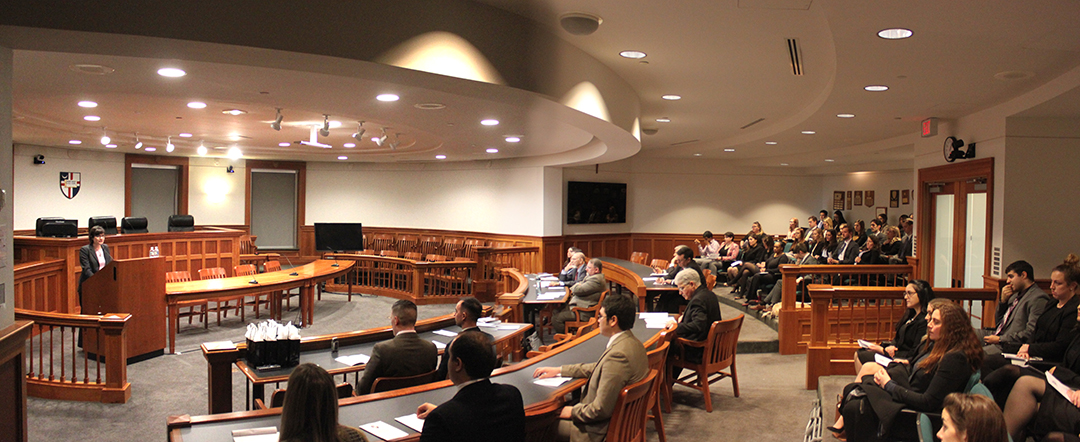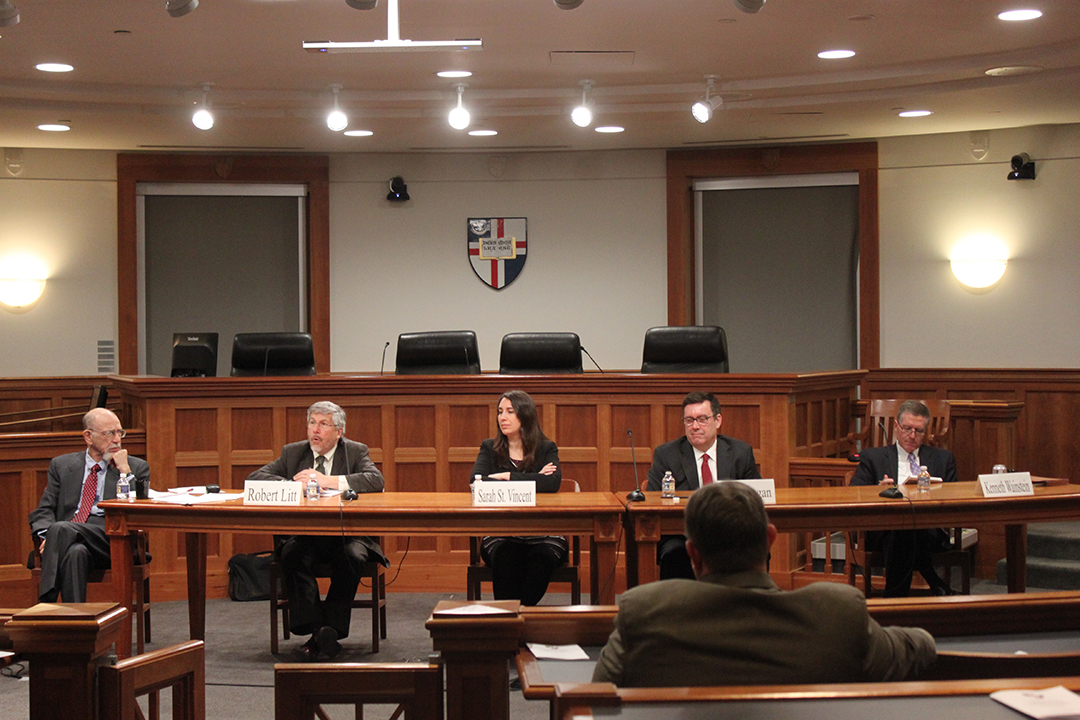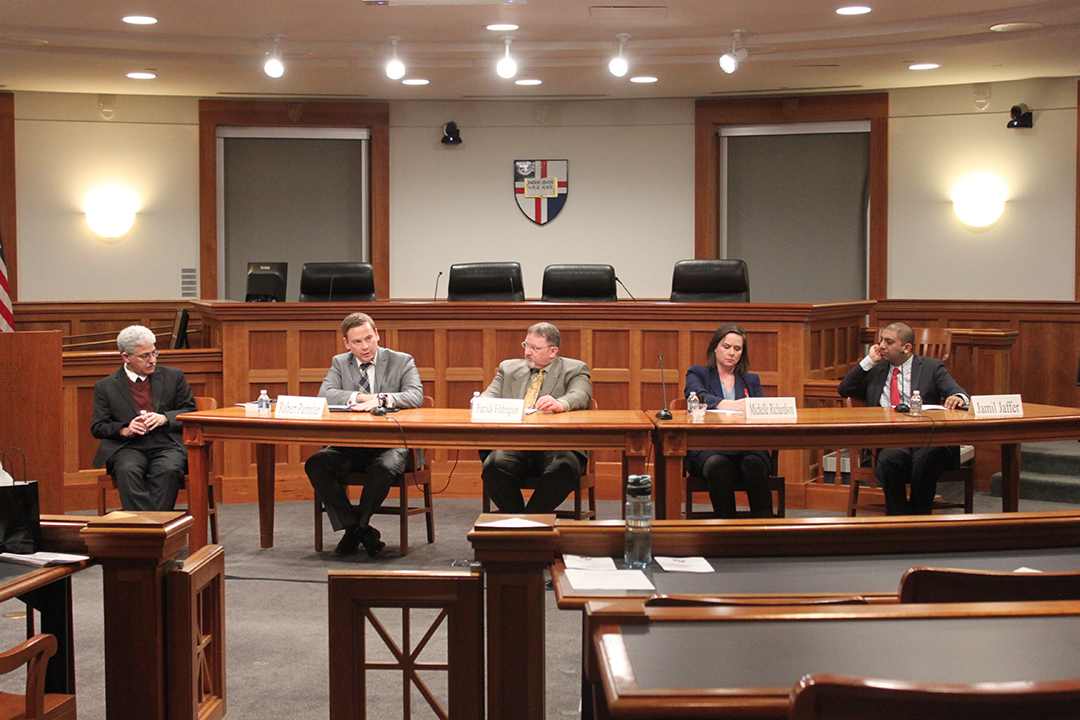
Catholic University Law Review's annual symposium, "FISA & the 4th Amendment: A Review of the 4th Amendment Implications in Foreign & Domestic Surveillance," provided an opportunity for students, faculty, and practitioners to hear from experts about the recent developments involving FISA and its impact on national security, civil liberties, and the Fourth Amendment.
The January 26 event opened with introductory remarks by Thomas Gentry (3L), Editor-in-Chief, Catholic University Law Review, Vol. 67, and CUA Law Professor Megan La Belle. The program consisted of two panel discussions and a keynote speech from Elizabeth (Liza) Goitein.
Goitein, who co-directs the Brennan Center for Justice's Liberty and National Security Program at New York University School of Law, discussed the impact that FISA has had on modern society and advancements in surveillance techniques.

Panel 1: The History of Surveillance and The Fourth Amendment
Moderator: Clifford Fishman, Professor of Law, Columbus School of Law
Panelists:
Robert Litt, Of Counsel, Morrison & Foerster;
Sarah St. Vincent, Researcher, Human Rights Watch, U.S. Division
Robert Timothy Reagan, Senior Research Associate, Federal Judicial Center;
Kenneth Wainstein, Partner, Davis Polk
The first panel discussed how law enforcement's surveillance capabilities have changed from the Patriot Act to Modern Day. Beginning with the modern applicability of Smith v. Maryland to current FISA court decision, panelists were asked questions relating to the legality of the Patriot Act and the increased authority under FISA. Panelists also discussed the value of the growth of the "surveillance state" since the Patriot Act, the benefits arising from improved surveillance techniques, and the potential pitfalls and legal consequences that arose following the Snowden Leaks.

Panel 2: Changing the Landscape - Efforts to Re-Shape Surveillance Law
Moderator: Antonio Perez, Professor of Law, Columbus School of Law
Panelists:
Robert Parmiter, Senior Counsel, House Committee on the Judiciary - Subcommittee on Crime, Terrorism, Homeland Security, and Investigations;
Patrick Eddington, Policy Analyst in Homeland Security and Civil Liberties, Cato Institute;
Michelle Richardson, Deputy Director of the Freedom, Security, and Technology Project, Center for Democracy & Technology;
Jamil Jaffer, Director of the National Security Law & Policy Program at the Antonin Scalia Law School at George Mason University
The second panel addressed why FISA Section 702 was first enacted, and what problems triggered a desire to change it by Congress. The panelists discussed the most current legislation such as FISA Sections 215 (bulk collection of data) and 702 (surveillance of foreign targets for a foreign intelligence purpose), examined the impact of its most recent authorization.
"It was a great event that allowed students to hear a diverse set of view points from panelists who are experts in their field," Katherine Sullivan (3L), co-editor of the Law Review, said. "The symposium provided an opportunity for students to learn about the debate surrounding FISA which meets at the intersection of national security interests and Fourth Amendment privacy concerns."
